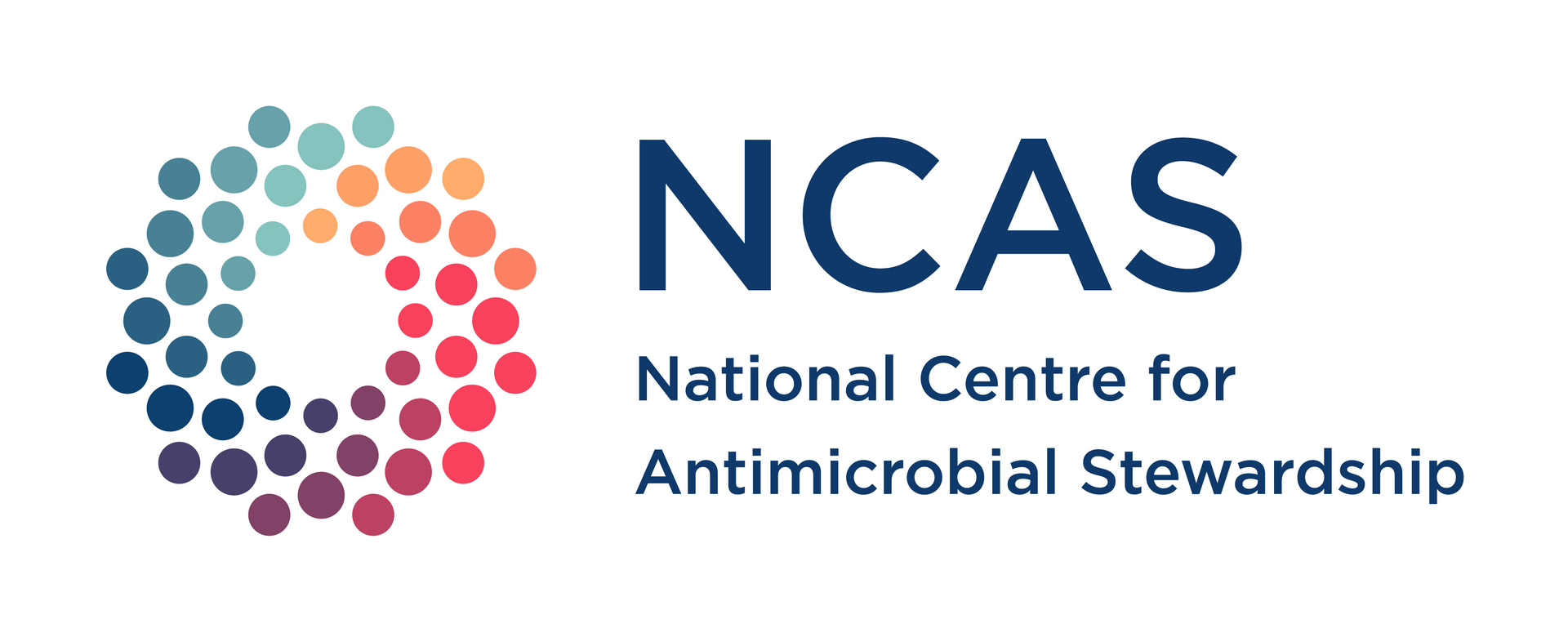Antimicrobial stewardship: hospital standards update in 2018
Karin Thursky
(Published in Medical Journal of Australia-Insight)
An expert commentary published in Clinical Microbiology and Infection (CMI) has highlighted the urgent need to support and fund teams of specialist health workers (including infectious diseases specialists, microbiologists, pharmacists and nurses) for antimicrobial stewardship (AMS) in hospitals and the community.
In this article, we argue that investment in AMS teams is key to optimising infection control practices, improving clinical outcomes and preventing the rise of resistant pathogens.
AMS teams can undertake a number of critical functions, such as providing expert guidance to prescribers and health care providers, monitoring antimicrobial use and resistance, instituting and managing approval and audit processes, and delivering staff education.
The CMI commentary, whose lead author is Professor Céline Pulcini, secretary of the European Society of Clinical Microbiology and Infectious Diseases’ Study Group for Antimicrobial Stewardship, and an infectious diseases physician at Nancy University Hospital and University of Lorraine, France, brings together perspectives from clinicians around the world. It highlights the importance of investing in specialised staff and resources for infection control and antimicrobial stewardship in health care settings globally.
As one of the authors, I would like to elaborate on how this specifically applies to Australia.
AURA (Antimicrobial Use and Resistance in Australia) 2017: second Australian report on antimicrobial use and resistance in human health, released on 3 August 2017, presents a comprehensive overview of the results of various programs dedicated to surveillance of antimicrobial use and resistance in Australia.
The National Antimicrobial Prescribing Survey (NAPS), which is annually conducted by our team at the National Centre for Antimicrobial Stewardship, measures the quality of antimicrobial use in hospitals. The 2015 NAPS found that, on any given day in Australian hospitals in 2015, on average, 40.5% of patients were being administered an antimicrobial. Around 23% of antimicrobial prescriptions were found to be noncompliant with guidelines, and 21.9% were considered inappropriate.
We know that antibiotics for surgical prophylaxis are often given for too long. In 2015, 40.5% of surgical prophylaxis prescriptions captured in the NAPS were deemed inappropriate, mainly because of incorrect duration (29.9%) and incorrect dose or frequency (27.6%); or because they were given for a procedure that does not require antibiotics (22%). Almost 40% of cefalexin prescriptions in hospital were deemed inappropriate, and the most inappropriate use of cefalexin was for surgical prophylaxis, urinary tract infections and pneumonia.
The Aged Care NAPS (AcNAPS) program looks at antimicrobial prescribing and infections in residential aged care facilities (RACFs). The 2015 Aged Care NAPS pilot, in which 186 RACFs participated, found that 65% of prescriptions did not have a documented review- or stop-date, and that 31% of antimicrobial prescriptions were given for more than 6 months. In about 32% of cases, the indication or reason for the prescription was not written in the notes; and about 20% of prescriptions were for residents who did not have any visible signs and symptoms of infection.
Changes in antimicrobial resistance patterns are being monitored. Compared with 2014, there has been an increase in fluoroquinolone resistance in Escherichia coli (+2.5%) and Shigella sonnei (+10.9%).
Carbapenemase-producing Enterobacteriaceae (CPE) and vancomycin-resistant enterococci (VRE) are notable among pathogens of concern in Australia, as is community-acquired methicillin-resistant Staphylococcus aureus (MRSA).
The launch of AURA 2017 provided leading clinicians and policy-makers another opportunity to deliberate on the next steps for Australia.
It is important to note that Australia has made notable progress in the field of AMS.
Since the introduction of AMS as a key criterion in the Australian Commission on Safety and Quality in Health Care’s hospital accreditation standards in 2013, Australian hospitals have been required to show that they have taken essential steps towards better management of antimicrobial use.
Localised development, implementation and reinforcement of policies on medication use, and enhanced staff education (aimed at familiarising prescribers, nurses and infection control practitioners with guidelines on antimicrobial use and restrictions) have been shown to be effective interventions.
Regular auditing, including through the NAPS (since 2011), which, as mentioned earlier, assesses the quality of antimicrobial use by measuring concordance with prescribing guidelines and appropriateness of prescribing, has led to increased awareness of patterns of prescribing and the identification of areas that require improvement. These steps towards better management of antimicrobial use have been facilitated by investment in staff and infrastructure.
While hospitals recognise the value of establishing and directing resources towards specialised AMS teams, the process is being hindered by the complexities of the jurisdictional health care system, as well as the disparities between rural/regional hospitals and well-resourced tertiary hospitals.
In our paper in CMI, we presented an overview of the results of our survey on national staffing standards for antimicrobial stewardship in 26 countries.
In Australia, there is currently no consensus on staffing recommendations within the national accreditation standards. However, as documented in Antimicrobial Stewardship in Australian Hospitals, a publication of the Australian Commission on Safety and Quality in Health Care, clinicians in hospitals with existing programs suggest that for every 100 acute beds, at least 10 hours (0.3 full-time equivalent [FTE] units) of senior pharmacist time and 3.5 hours (0.1 FTE) of lead clinician time per week should be dedicated to AMS activities. A minimum of 4 FTE per 1000 acute-care beds is recommended. For rural and regional hospitals, access to experts through networks or telehealth is recommended.
In some European countries, such as the Netherlands, Belgium and France, AMS is well-embedded in clinical practice. In the Netherlands, AMS is considered part of the baseline standard of care, and FTE staffing figures are not routinely specified. In Belgium, the federal government provides dedicated funding to all acute-care hospitals and chronic-care hospitals with over 150 beds to hire a trained antibiotic treatment manager for their AMS team. In France, hospital AMS programs are often underpinned by well-defined programs of core activities, including daily advice to prescribers. Hospital-based AMS specialists are also expected to participate in regional outpatient networks.
We believe that consensus on a list of activities for AMS and workforce needs is required. The ‘gold standard’ involves teams that include infectious diseases specialists, microbiologists, pharmacists, and nurses.
Most Australian states have committed to statewide programs to coordinate the implementation of AMS. In Victoria, following the publication of the Duckett report in 2016, there has been a focus on safety and quality in health care and a new drive towards a statewide approach.
AMS teams at many large tertiary hospitals are led by infectious diseases physicians and clinical pharmacists. Some smaller and regional hospitals, lacking specialist infectious diseases support, have nurses and infection control practitioners leading AMS initiatives, usually as part of another role.
A national survey undertaken by the National Centre for Antimicrobial Stewardship highlights that approximately 50% of respondent hospitals (301) have funded time allocated for AMS. This study, when published, will provide granular details on resource allocation for AMS in the Australian hospital sector.
Antimicrobial stewardship is a labour-intensive service that requires sufficient resources to effectively monitor prescriptions. Our best hospital IT systems cannot substitute for expert review and oversight of antimicrobials once they have been prescribed. We know from the NAPS data that one in four prescriptions is inappropriate. Once you consider that about 40% of inpatients are actually on an antibiotic at any point in time, you can understand the magnitude of our task.
Investment in resources such as decision support and audit tools is also important. The use of decision support, approval and post-prescription review tools has been associated with improved prescribing patterns and patient outcomes, and lower drug acquisition costs.
It is anticipated that an update of the hospital accreditation standards will be implemented in 2018, and there is likely to be renewed emphasis on refining elements such as approval processes and auditing.
While the hospital sector in Australia has seen considerable progress, much more can be done to improve prescribing in primary care and the community, and in veterinary and agricultural settings. The private sector is also under pressure to introduce AMS services as part of the accreditation framework. However, determining the cost effectiveness of AMS is a difficult undertaking, and business cases for comprehensive AMS remain a “hard sell” for many institutions in the current climate.
This CMI commentary by our colleagues from around the world brings renewed focus on global imperatives for greater investment in specialised infectious diseases and AMS expertise in health care settings – for improved management of antimicrobial use, and the preservation of the effectiveness of existing and new antimicrobial drugs.
It is important to remember that AMS is, first and foremost, about enhancing patient safety and improving health outcomes.











